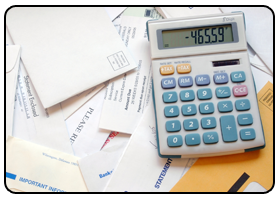With so many people today having personal money worries it is remarkable how reluctant some people can be in seeking a solution to their financial problems. The important thing is to begin somewhere and getting professional advices ranks highly in the list of things to do. It is often helpful to rate our financial situation on a scale of one to ten with a rating of one being in a state of comfort and affluence and a rating of ten being in a state of hopeless personal insolvency. Except of course that there is always hope and this is particularly so in the UK where enlightened legislation and a fresh start approach to personal debt provides more than just hope. There are attractive alternative strategies that the financially burdened citizen can pursue, regardless of the severity of personal insolvency.
The four principal options or approaches when facing a personal debt crisis are Debt Consolidation, Debt Management, Individual Voluntary Arrangement and Bankruptcy. The first two of these options, Debt Consolidation and Debt Management, would normally be availed of by people who, strictly speaking, are not technically insolvent but may have considerable difficulty in managing their finances. On the scale of one to ten, their problems would rate as a six or less. The second two options are for people who are clearly insolvent with problems at the upper end of the scale ranging from about five to ten. Each of the four approaches has its own advantages and disadvantages. It makes sense to consider them all before deciding which of them to employ. It also makes sense to seek advice from one of the charity debt advice bodies such as the CCCS or from one or more of the commercial insolvency advice firms before making a final decision. Let’s look at each option briefly in turn.

The first of these options is Debt Consolidation. It involves getting a new loan which you use to immediately clear all other unsecured debts. As a result, you only have to make one regular monthly repayment of the consolidation loan. Of course the repayments need to be affordable. There are several types of consolidation loans. They can be unsecured or they can be secured on your property. If you consolidate all your debts in this way you need to be confident that all of your unsecured debts are included and that you can afford to make the regular payments for the full term of the consolidation loan, which may be longer than any of the terms of your existing loans. You should also refrain from obtaining any further credit while you are repaying the consolidation loan. Remember that with this option you will be managing your own debt problems and dealing directly with your own creditors. There are various pitfalls in going the consolidation route but if you can answer yes to each of the following questions, then it may be a viable option for you. Do I have a regular income? Do I have a reasonable level of disposable income i.e. the amount of income left over when I have paid my rent or mortgage, car HP, living expenses (including food, fuel, clothing, transport, energy, phone, council tax, insurances, car tax etc) for both myself and my dependents? Do I have a decent credit rating? Am I solvent?
It may be that one of the other three main options is more suitable for your circumstances and we will look at a Debt Management Plan in the next article in this series.
Author : Paddy Byrne 30/08/2012
